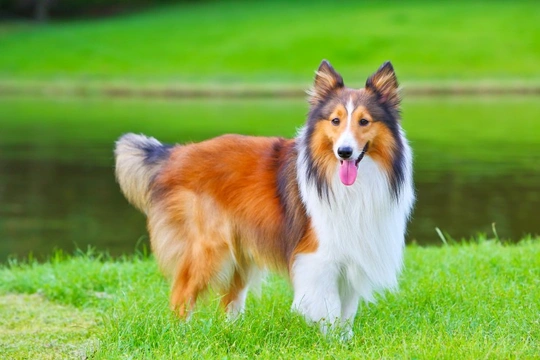
How to tell if the Shetland sheepdog is the right dog breed for you
The Shetland sheepdog is a small dog breed with a very long, thick and plush coat, often likened to the rather larger rough collie. As one of our UK native dog breeds, the Shetland sheepdog originates, as you might expect, from the Shetland isles – which means that they are hardy, very tolerant of the cold and generally, robust, outgoing and healthy.
If you are keen to own a Shetland sheepdog, it is of course important to do plenty of research into the breed first, and ensure that you can provide the right type of home environment and lifestyle for them, and provide for all of their other needs.
Despite being a small dog breed, the Shetland sheepdog or “Sheltie” shares a lot of traits with a range of other, larger working breeds, and their temperament, as well as their looks, is often likened to that of collie dogs, which are almost always very intelligent, lively and full of beans.
If the Shetland sheepdog has caught your eye, or if you have met one out and about and have fallen for their charms and lovely, snuggly fur, this article will help you to determine if the Sheltie is the right dog breed for you, examining some of their core traits that can be advantages for some owners, but potential problems for others! Read on to learn more.
You’re happy to spend a lot of time grooming your dog
The Shetland sheepdog’s fur is perhaps their most distinctive trait, and the combination of the long, smooth top coat and the very fluffy, dense undercoat makes the breed’s coat very tactile and pleasant to stroke and cuddle up with.
However, all of these things also make the coat care required for the Shetland sheepdog fairly onerous, and you will have to dedicate a portion of time to brushing and grooming your dog every day, as well as giving them the occasional bath.
Despite the breed’s small size, thoroughly brushing and combing the dog’s coat can be a fairly protracted process, given the sheer volume of hair, different coat textures, and the denseness of the undercoat.
Brushing and combing right down to the skin and taking special care over areas prone to knotting up such as the armpits and sides of the neck can take quite some time, and only a couple of days of skipped grooming can soon leave you with quite a mess to sort out!
You want a robust, healthy breed that tends to live for a long time
The Shetland sheepdog has an average lifespan of around 12-13 years, although dogs of the breed do often live significantly longer than this, even into their late teens. Additionally, they tend to be resilient, robust dogs that don’t suffer from a huge range of health issues, although like every pedigree dog breed, there are certain risk factors for hereditary health conditions that you should be aware of and discuss with the dog breeder you are considering buying from.
Shetland sheepdogs aren’t prone to picking up minor coughs and sniffles that are going around and are actually very well suited to winter and colder weather – although their thick, plush coats do lead to a propensity to overheat in the summer if exercising vigorously on very hot days.
You’re keen to own a smart, lively dog that can learn lots of things
Like most working dog breeds, the Shetland sheepdog is a smart, savvy dog that is quick to learn new things, and will usually thrive on being taught new skills. This makes them a good choice for people that want to take part in dog sports like agility or obedience, or who simply enjoy teaching their dogs tricks and new commands regularly.
However, this propensity to learning quickly also means that the Sheltie will sometimes be quick to pick up bad habits, particularly if they are bored or don’t get enough exercise.
You don’t mind owning a very vocal dog
If you’re looking for a very quiet companion that rarely vocalises and isn’t prone to barking, you should cross the Sheltie off your list. The breed as a whole tends to be quite vocal and quick to bark and make a lot of noise, which means that they are excellent watchdogs, and will soon alert you to someone approaching the home.
However, it can be hard to manage barking in the breed if you live in a suburban or urban environment with close neighbours, and are unable to train your dog to be a little quieter, or if you have to leave them on their own during the day.
You’re prepared to spend a lot of time with your dog to keep them happy
Dogs don’t thrive if left to their own devices without company, exercise and stimulus, but some dogs tend to be more tolerant of being left alone than others – the Shetland sheepdog is not one of them.
If you work outside of the home, you will need to make arrangements for someone to care for your dog during the day when you are out, and Shetland sheepdogs don’t handle being left alone for long periods of time very well, often becoming noisy or destructive.
However, if you are home a lot, have a lot of free time and are looking for a dog that stays close by, the Shetland sheepdog may be the right dog for you.



